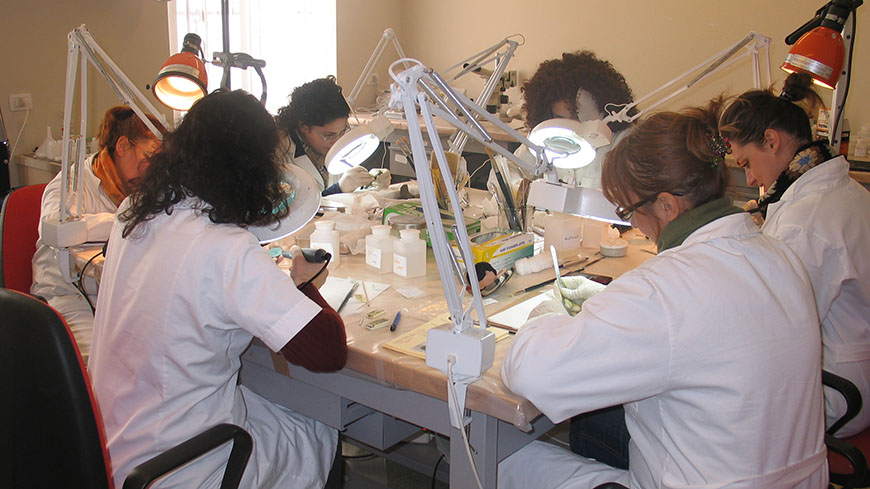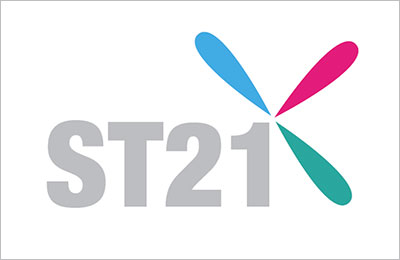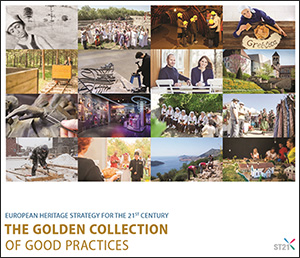Location of the initiative:

Relation to Strategy 21 Recommendations:
K5 – Diversify training systems for heritage professionals
K8 – Guarantee the competences of professionals working on listed heritage
Time span of the initiative:
Start Date : June 2005 / End Date: ongoing
Brief description of the initiative:
With an agreement signed in June 2005 between the Minister of Culture, Youth and Sport of the Republic of Albania (of that time) and UNESCO Director of Division of Cooperation it was decided to undertake the project “Organization of the Centre for restoration and conservation of the monuments in the framework of capacity building in the field of preservation and restoration of Cultural Heritage of the Republic of Albania”. The initiative was funded by the Italian Ministry of Foreign Affairs to UNESCO. Investment enabled creation of the Centre for Restoration with technical laboratory for restoration of movable artifacts, workshop for the planning of restoration on ancient architectures, administrative facilities and services fully equipped and ready for operation. A three semesters training course addressed to both architects and artifacts restorers was then planned and implemented between January 2007 and October 2009. The training course was attended by 20 members from the Institute of Cultural Monuments, Regional Directorates for the Monuments in various cities of Albania, members from archaeological parks and the National Gallery of Arts. In 2008, the Ministers responsible for Culture in South-Eastern Europe (Albania, Bosnia and Herzegovina, Bulgaria, Croatia, Macedonia, Moldova, Montenegro, Romania, and Serbia) and Italy in the Fifth Ministerial Conference on Cultural Heritage in South-Eastern Europe, held in Bucharest have considered in the Bucharest Declaration concerning the Enhancement of Cultural Heritage for supporting Dialogue, Integration, and Sustainable Development the successful experience in progress. In the final statement they stressed the willing of the regional governments to undertake common initiatives and collaborate at regional level to increase the effectiveness and consistency of the respective actions in the protection of cultural heritage. At point 9 they have welcome the creation of the Centre for Restoration in Tirana, convinced that this institution would greatly contribute to support training and capacity building in this specific sector at the regional level. The Ministers have so attributed to the Tirana Centre an international level and a possible rule for the entire South Eastern Europe.
The Regional Centre for Conservation and Restoration of South East Europe, is currently one of the Departments in the Institute of Cultural Monuments, which is the main national institute for the protection of tangible cultural heritage in Albania. The main activity of the Regional Centre, in accordance with the strategy of the Ministry of Culture is raising professional capacities in the field of cultural heritage through Training.
In order to strengthen technical capacity in the field of cultural heritage the Regional Center for Conservation and Restoration of SouthEast Europe, develops training courses organized in five modules:
- Techniques and methodologies of Conservation and Restoration of Cultural Heritage
- The Science of materials in processes of conservation and restoration of CH
- Urgent intervention on objects or areas of cultural heritage
- Cultural heritage conservation approaches with focus on the community
- World Heritage
The Regional Centre for Conservation and Restoration for South-East Europe was created in order to fulfill the emergent need for raising professional capacities of the cultural heritage institutions in Albania and extended its status to the region of South East Europe. The Ministry of Culture has followed a clear methodology to create this centre based on an agreement with UNESCO with the main aim to follow the recommendations and guidelines of UNESCO and to fulfill the needs and challenges present the South East Europe Region in the field of cultural heritage. During the period 2007-2018 it has organized and implemented 13 short / medium and long term training courses in the above mentioned modules. About 150 young professionals from the Region of South East Europe have been trained on these courses. Nearly all of these courses have been certified by UNESCO.
Brief assessment of the initiative’s results:
At the moment of creation of the Regional Centre the professional capacities in the cultural heritage field in Albania mainly consisted in highly experienced professors working in the Institute of Cultural Monuments in Tirana whose lifetime work and studies were dedicated to cultural heritage. They belonged to more or less the same age generation and were close to retirement from administration work. Due to 20-year transition from communist regime, little focus was given after the 1990-s to cultural heritage sector (both from financial and future perspective point of view) and thus it was not attractive to young professionals to start and continue their career in this field. This caused a generation gap in this sector and in 2005 it was realized that the need for raising professional capacities in the cultural heritage field was urgent.
The main change of this initiative was the creation of the young generation and transmission of knowledge in the cultural heritage field from the old generation of professors to the young professionals that started to be part of the system.
The first course 2007-2009 resulted with 20 trained professionals that were staff members of the Institute of Cultural Monuments and Regional Directorates of National Culture. Apart from the knowledge on the application of cultural heritage policy in Albania (through national trainers) they gained knowledge on international standarts on this field from distinguished international trainers. Part of them, still work in the Institute of Cultural Monuments. All trainees in general, continue to be part of the staff of national, regional and local institutions of the cultural heritage system as well as part of licensed companies working in this field.
Another change of this initiative was the apparent raise of quality and use of digital technologies in project design. This enabled the preparation of more complete studies and restoration projects.
Very important change is the regional focus gained for participants, trainers and the institution through experience and knowledge sharing as well as creation of professional networks and profiting from good practices in the field.
What lessons learned have you identified from your initiative? (Max. 4000 characters)
Main lessons learned were:
- Transmission of professional and institutional knowledge and memory is very important for ensuring the protection of cultural heritage
- Sharing of knowledge is a very valuable basis for the raising professional capacities
- Knowledge needs to be strengthened and updated in specific topics and by being in line with international standards
- Cultural heritage should be considered without borders. Countries within the SEE region display similar characteristics in ways of living, mentality, climate, construction typology, materials and techniques.
Online resources:
Contact
DOLLANI ARTA
Organisation: INSTITUTE OF CULTURAL MONUMENTS “GANI STRAZIMIRI”
Email: [email protected], [email protected], [email protected]
Phone: +355 44504152, +355 69 20 69232





